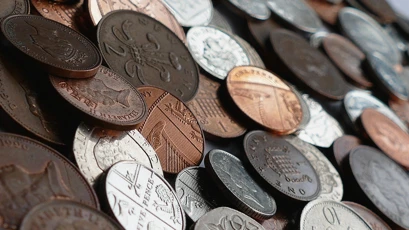Finances are often at the forefront of our minds, and can be integral to ensuring a positive mindset and our overall wellbeing. How you manage your finances is something that lenders will scrutinise closely within your mortgage application, so it’s important that you pick up good habits from the offset to help ensure a smooth, hassle-free process.
You may be planning on buying your first home, are thinking of moving house, or your current mortgage is coming to an end - whatever stage you’re at, there are a few changes you can make to get ‘mortgage ready.’
1. Take stock of your finances
Assessing your current financial circumstances is the cornerstone of good financial planning. Start by noting down your monthly income, expenditures, spending patterns, and outstanding debts. This can range from bills, direct debits, and debt repayments to optional expenses such as streaming services, meals out, and holidays.
Once you have an idea of your income and outgoings, you’ll be able to set financial goals and see how your current situation aligns with them - for example, how much you can save for a deposit. Our borrowing calculator is a simple way of getting a handle on your financial status, providing you with an estimate of what you could borrow for your mortgage. The higher your deposit, the more you could potentially afford to borrow.
2. Saving is key
By tracking your remaining income after bills, debt commitments, and other expenditure, you’ll be able to establish a budget for your savings. Categorising expenses into essentials and non-essentials can also help you to identify areas where you can cut back. Once you’ve done that, work out a realistic amount that you can allocate to your savings pot for that all-important deposit.
The MyMAB app can help you lay the foundations for good financial planning, comprising a handy savings tool that helps you set and track your savings goals, as well as identify any areas for improvement.
3. Keep a record of your finances
Having a decent track record of your financial history is hugely beneficial when it comes to applying for a mortgage. Proving your ability to pay your credit card on time not only demonstrates to lenders that you’re financially responsible, it can also increase your overall credit score - both of which can increase your mortgage eligibility.
Any errors, no matter how small or insignificant, can have an impact on your credit score. Access your credit reports from your chosen credit bureau to understand what these mistakes are, so you can work on repairing them. This will demonstrate your financial responsibility to lenders, and put you in a much stronger position in terms of your eligibility for a mortgage.
4) Clear existing debt (where possible)
If at all possible, it’s good practice to clear any existing debts before you start the mortgage process. Getting a mortgage with outstanding debt isn’t completely out of the question, but it can be more challenging, especially if it’s a larger debt. In some instances, it may be worth consolidating your debt and paying it off as a lump sum, rather than managing multiple small accounts.
5) Speak to a mortgage adviser
Applying for a mortgage gives you plenty to think about as it is - so why not work with an adviser to streamline and simplify the process? They’ll break down the complex jargon into easy-to-understand information, helping you secure a deal that aligns with your current financial situation. Advisers can also have exclusive access to deals that aren’t available on the high street, so you know that you’re getting the right mortgage for you.
Important information
Your home may be repossessed if you do not keep up repayments on your mortgage.
There may be a fee for mortgage advice. The actual amount you pay will depend on your circumstances. The fee is up to 1% but a typical fee is 0.3% of the amount borrowed.




